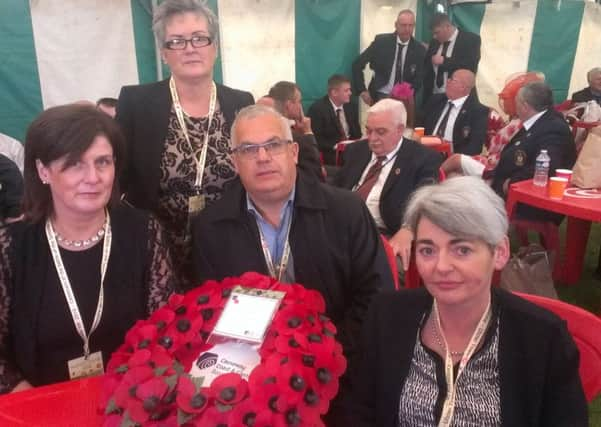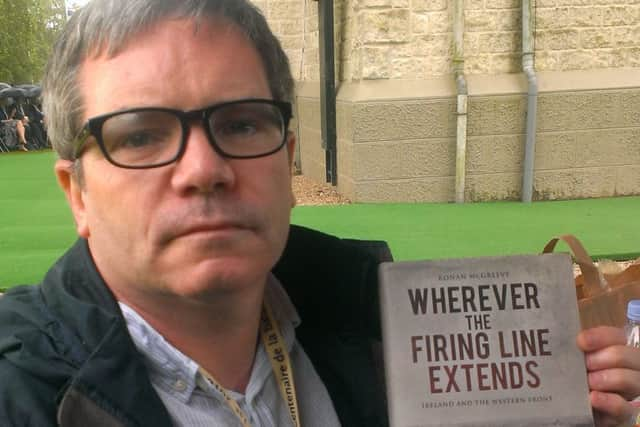Somme: Many Catholic Irish also died in the months long offensive


This is due to the fact that soldiers from the 36th Ulster Division were particularly badly hit on the first day of the Somme, on July 1, a century ago.
Many of the southern Irish deaths happened months later.
Among the people at Friday’s centenary service was Ronan McGreevy, an Irish Times journalist who has a longstanding interest in the Great War.
Advertisement
Hide AdAdvertisement
Hide Ad

He estimates the total number of Irish dead from the overall Somme at 7,000, divided roughly half and half from either side of the border. That almost 2,000 of the Ulster dead lost their lives on the very first day underscores the carnage of July 1, and why it still has such resonance in Northern Ireland.
The exact figure of Irish dead is unknown, because such soldiers often served in regiments based in Great Britain.
Mr McGreevy has written a book about the various Irish memorials to the Great War dead, of which the Ulster Tower is one of the most impressive, he says.
The book, which is entitled ‘Whenever the Firing Line Extends: Ireland and the Western Front,’ was by coincidence published on Friday.
Advertisement
Hide AdAdvertisement
Hide Ad

Also present at Friday’s service were a number of SDLP politicians, including Christine McFlynn (of Mid Ulster council), Roisin Loftus (Causeway Coast and Glens), Tim Attwood (Belfast) and Rosemary Shields (Fermanagh and Omagh).
Mr Attwood said: “For so long, Irish nationalists north and south didn’t fully recognise the Irish and British men who died in World War One.”
Ms McFlynn said: “The 100th anniversary is a special year for all those related to those who died.”
Ms Shields said: “People forget that nationalists came to support Britain. They were told that Asquith would deliver Home Rule.”
Mr Attwood said of the service: “It was very moving.”